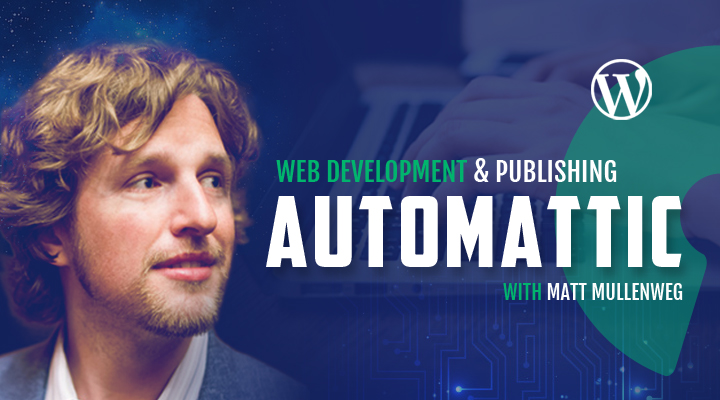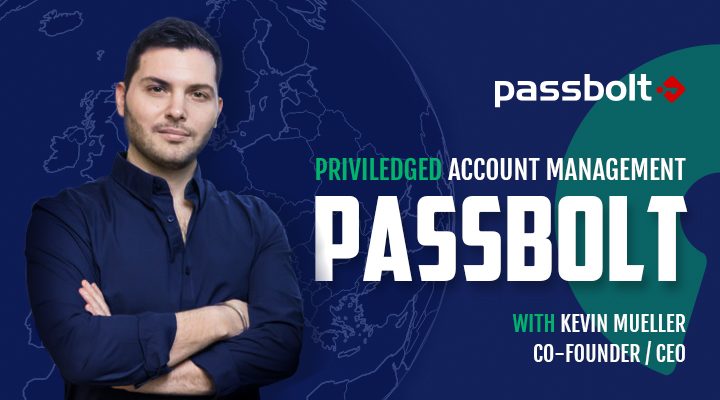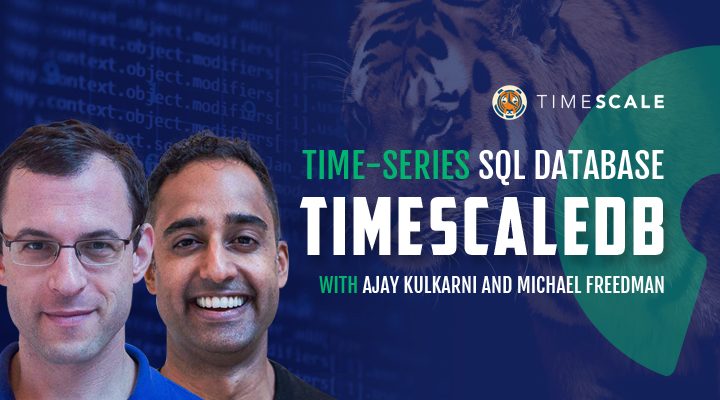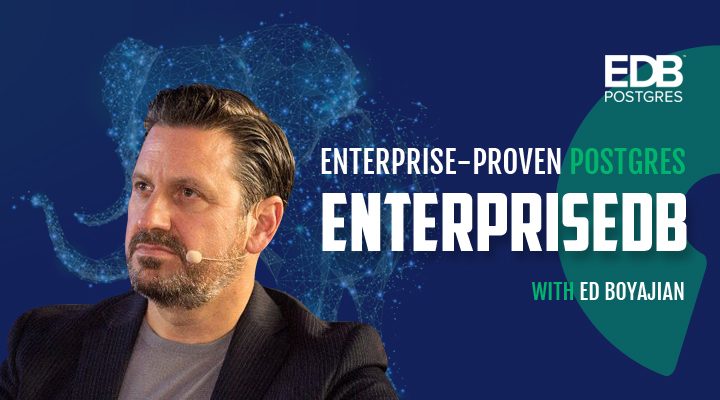
Episode 6: Automattic – Web Dev & Publishing with Matt Mullenweg
Podcast: Play in new window | Download
Subscribe: RSS
Matt Mullenweg is Co-founder of WordPress, the most popular open source blogging and content management platform in the world. In 2005 he founded Automattic, the company behind WordPress.com, WooCommerce, Jetpack, and more. In this episode, Matt describes how they built a thriving business around WordPress.
Automattic Transcript
Transcript
Michael Schwartz: Welcome to Open Source Underdogs, the podcast where we ask the founders of open source software companies the business questions you’ve always been wondering.
My guest today, Matt Mullenweg, is the Founder of Automattic the company behind WordPress, the most widely used content management system in the world, and the platform of choice for this podcast.
Origin
Matt Mullenweg, thank you for joining us today. Can you start by telling us a little bit about the history of Automattic and how it all got started?
Matt Mullenweg: I got started very much in a typical open source contributor path.
Where I was kind of reading blogs, got curious about blogging myself, started out with some proprietary software called Movable Type, and then switched to an open source one called B2-Cafelog.
I became active in the forums for B2. And then as I started to learn to code a little bit, started contributing some code. And creating some – there were no plugins at the time – but essentially hacks or extensions for B2.
And then that parlayed into what became a fork of B2, because B2, the development was kind of abandoned. So at the time there were probably four or five different forks of the code base.
I started one called WordPress with a fellow who I met through the forums, and through my blog, called Mike Little, who was in the United Kingdom at the time. And that was the one that took off.
I had had some experience kind of organizing groups, kind of local tech things in Houston before, like a PalmPilot user group and running the computer club of my high school. So I kind of started just organizing people and bringing them together and WordPress became the most successful of the different forks B2.
A few years later I moved to San Francisco to take a job, so I dropped out of University of Houston where I was barely attending classes, and went to San Francisco to work at CNET.
And then once there, it became obvious that there were bigger opportunities to start a company.
And about a year later founded Automattic.
Community Size
Michael Schwartz: What was the community like for WordPress at the time you started Automattic?
Matt Mullenweg: Small but mighty.
We had a very good and mixed group of kind of core contributors. The forums were pretty active. Things had really started to pick up, but it was only about two years old so we were definitely very early in the adoption curve, in terms of prices market share.
We weren’t showing up as a percentage of all websites in the world yet or anything like that.
Revenue Streams
Michael Schwartz: What was your idea for revenue streams when you first started the company?
Matt Mullenweg: It’s actually not that far from where we ended up, although I used some different terminology at the time.
So ringtones were kind of a big thing, so I was like it’s some equivalent of ringtones for blogs that might be themes, or things you can sell that are like little add-ons that allow people to customize. And then just the idea of cloud services.
There were some things that were easier and more effective to do in a centralized fashion. Anti-spam being the first one that we actually created.
I created an anti-spam service called Akismet. Actually still some of the code I’m most proud of, because over 10 years later it’s still running with over five nines of effectiveness. That was one of our first services that we created for WordPress users.
And actually, we’ve always been somewhat agnostic in that Akismet was designed from the beginning to both work with WordPress, but work with other CMS’s and platforms as well.
At the time that was a pragmatic decision, because WordPress very small, but I also consider a kind of philosophical thing that there’s room for lots of solutions in the market.
Conglomerate?
Michael Schwartz: Seems like there’s a number of related services that sort of build this larger organization. Is that accurate?
Matt Mullenweg: A little bit of the model was, even in the naming and branding, was more like Procter & Gamble, or Berkshire Hathaway, or how Alphabet is structured now. They were the inspiration for how we want to structure the company is to be almost like a holding company for the various ideas, commercial services, and innovations, things that we want to see in the world.
So even today, though WordPress.com is by far and away the biggest part of the Automattic’s business, we still have a division we call “other bets,” kind of shamelessly copied from Alphabet, that does new and small stuff.
Customer Segments
Michael Schwartz: What do the customer segments of Automattic look like?
Matt Mullenweg: We’re very much a subscriber-driven business.
So our bread-and-butter is people paying somewhere between $50 and $300 per year for services for WordPress, that could be hosting on WordPress.com or add-ons through Jetpack or Woocommerce; Woocommerce is our eCommerce engine.
Yeah, that’s, it’s kind of nice because having such a broad user base, we’re not overly dependent on a few clients. You know, being a subscription service, you can have very predictable revenue and gross metrics.
Infrastructure Challenges?
Michael Schwartz: One of the challenges I think for a hosting business like that is it’s hard to build really reliable infrastructure. And a lot of the time that requires economies of scale, and a lot of capital. Was that sort of daunting when you initially got started?
Matt Mullenweg: Infrastructure’s actually always been one of our key distinguishers from competitors.
You know, being very frugal and scrappy early on, and also of course leveraging open source technology wherever and whenever we could. We were able to build systems that were resilient across data centers, and we have a very savvy systems team that’s actually been able scale that.
So now running a bunch of the traffic across the whole web we see well over a billion people from month and with a team, which is kind of in the five to seven person range, on the systems and network side.
Value Prop
Michael Schwartz: So you’re getting lots of operational leverage in running the services, it’s pretty amazing.
Matt Mullenweg: Part of that’s also that we don’t rely too heavily on the cloud services like Amazon web services and others because they tend to be very expensive. So we can get very good cost efficiencies by going a little closer to the metal, and investing in networking and hardware.
We’re a subscriber oriented business, so not being advertising-driven means that we’re very privacy and user-centric, which has not always been the most popular thing, but I would say in today’s day and age many more consumers are beginning to appreciate that reliability and trust.
You know, including with the WordPress broader open source community, there was a lot of fear when Automattic started. That it would corrupt or slow down the opensource side of things. That’s fair fear actually, because it often happens.
But now over 13 years, I think people have seen that Automattic and the open source side are actually highly complementary and they help each other a ton. So it’s better together than it would be if either were on its own.
You mentioned reliability, you know, we’ve tried to architect our systems assuming pretty much everything is going to go wrong. So built-in redundancy and robustness there wherever we can.
Value Of Open Source Community
Michael Schwartz: So in the interest of full disclosure Gluu is a WordPress user, and I don’t know how we would operate the business without it.
And for us, one of the things that we felt about the platform was that there was this huge community of resources available, who could help us with WordPress. It drove down the cost of the resources and there was also a lot of like software, like you need a plug-in for this or that. Or this theme that’s like, it’s probably out there already.
But could you talk a little bit about the synergies of maybe how the open source has helped build a product and the impact, I guess positive, negative, or challenging, that it’s had with the business.
Matt Mullenweg: First, I will take the opportunity to say that you should install Jetpack and get the JackPack business subscription for all your WordPress’s. It’s very inexpensive, it’s only $300 per year, and especially for business sites it provides a layer of security, backups, and enhancements that’ll get you more traffic and make your site faster; so all good things.
It is one of our challenges that so few WordPress users actually subscribe to any Automattic services.
A lot of the value and revenue in the WordPress ecosystem goes to other folks in the ecosystem that don’t necessarily contribute as much back to core [source] – Automattic contributes a ton to core. And I would say the advantage of where we’ve taken open source for it’s approach is it makes things it’s often slower, so it takes longer.
But the end output, the end outcome, reflects a lot of feedback, and a lot of input from every possible stakeholder. So you end up creating things that, you know, incorporate accessibility better, or are localized into 40 or 50 languages from day one, that then incorporate a lot of use cases for people who extend WordPress and plugins and themes.
And you get the agencies in there, you get the universities in there. You get feedback from kind of every possible sector, and the wide uses that something that powers 31% of all websites gets. And just that cycle is much more rigorous than what might happen purely inside a company, even a larger company like Automattic, which is now about 800 people.
Remote Workforce
Michael Schwartz: I was reading that the Automattic team is fairly distributed across the world. Can you talk a little bit about the advantages/disadvantages of the remote workforce and how that helped you build business.
Matt Mullenweg: If anyone’s listening to this podcast, they probably are more likely to be amiable to distributed work, because that’s how the vast majority of open source projects work. So that’s how we started that way.
The original four or five folks were the people who I was already working with on a volunteer basis, you know, around the world, working on WordPress. So that was the obvious folks to start the company with.
As we grew there’s a lot of pushback against that, particularly from more traditional kind of Silicon Valley investors. We always remained agnostic and said hey, we’ll do this as long as it works, and if it stops working, we’ll explore other things.
And now 800 people later it’s still working very well, and I don’t see any reason to change.
The biggest advantage I would say, is that people are able to design their working and life integration in a way that going into an office, being physically co-located with everyone else that you work with every day, just doesn’t allow. So there’s a flexibility that’s kind of unmatched, and that includes being able to live and work anywhere in the world.
That also, I think, opens you up to talents – super talented people – that wouldn’t be able to integrate kind of a normal nine-to-five office work day with the life choices they’ve made. That could be caretaking for people who are younger or older, or pets, or something else that might need to break up your day differently from the nine-to-five workday.
Or it could be living outside of a tech hub like Seattle or San Francisco, for whatever reason. I’m actually based in Houston, Texas and I love being there because my mom’s there. And she’s not too mobile these days, she doesn’t really travel. If I’m not in Houston I don’t see her as much, and seeing her as much as possible is something that’s very important to me.
So being able to have my home base in Houston, but still contribute equally, and be able to engage with the entire company as if we were all in the same building is just something that’s unmatched by almost any other job.
Partnerships
Michael Schwartz: How about partnerships. Are there other businesses or organizations that helped you along the way?
Matt Mullenweg: Oh, countless, you know. I think nothing really great gets created on your own.
At the time when we started it was pretty early days for distributed and open source businesses. I definitely looked to MySQL. You know, Mårten Mickos’s leadership over there, and he’s someone I’ve known probably since then, you know so over a decade now.
A lot of inspiration, I would say 37Signals which was David Heinemeier Hansson there, both doing Ruby on Rails but also Basecamp and their other products. And they would write a lot about their process and how they built the company.
I read a ton of books as well, so like Seth Godin, Guy Kawasaki, Peter Drucker, who’s a little more old-school but really useful. I do a ton of my learning from books. This year I’ll probably read 50 or 60 books. I used to do almost exclusively nonfiction and do more business books. Now I actually mix up quite a bit of fiction because I find I learn a lot from that as well, and it is enjoyable.
You know, just from the beginning I always loved reading. I actually have on my desk at home the Daily Drucker – which is almost like one of these calendar books, so every single day it’s a different quote from a different Peter Drucker book or article; and I try to make it a part of my daily habit, when I get started in the morning.
Michael Schwartz: Has the channel been mostly people finding you on Google, or finding the open source and looking for options? Or are there any other channels that you used in the beginning, or now that have become important?
Matt Mullenweg: There’s two sides of our business as well. We do have an Enterprise side call VIP. So let me talk about the consumer side first.
I would say from 2005 to 2016, so for about 11 years, it was all very organic – word-of-mouth, SEO, just normal channels. In 2016 we began to do marketing and advertising, and that has been actually pretty transformational for our business.
I didn’t like or believe in advertising before, so that was part of why we never did it. But really I didn’t understand it. And competitive pressures are, you know the Wix’s, Squarespace’s, Weebly’s, Shopify’s of the world started investing hundreds of millions of dollars per year into advertising, and we began to see it have an effect in certain markets.
So we were like, we better figure this out as well. And it’s been really fantastic for the business.
The other priced side of our business, VIP, which is probably more in line with what Gluu does, they’re typically dealing with very large customers, they have a sales cycle, and it kind of starts at 25 or 30 grand a year to use VIP, and goes up to millions per year. They just have very normal kind of Enterprise process.
And a lot of their growth there comes from existing clients, both existing clients expanding their use of VIP, also saying hey, this is something that Facebook uses and you know, all these other really impressive sites use, so let me check it out.
VIP also comes in a lot through what I call the bottom of the pyramid. So it’s not so much convincing a CTO or someone to adopt it – although that starts to happen more now. It’s where often someone installs WordPress and asks for forgiveness not permission, and it takes off like wildfire.
Next thing you know the higher-up’s are like, well we’ve got like 50 WordPress’s now, and they’re running half of our traffic, let’s figure out how to do this better. And that’s often when they’ll come to VIP.
Michael Schwartz: Is VIP a hosted service or a support service?
Matt Mullenweg: It does both but most people utilize the hosted diversion.
Michael Schwartz: On the Enterprise side, do you have any partners who help with integration and professional services?
Matt Mullenweg: We do. There’s about a dozen what we call VIP agency partners, that are essentially agencies. They do much more client services and development. It’s not required to work with them but most VIP clients do.
Michael Schwartz: Is there sort of a line that you draw for what types of work, maybe that you want to take on, or what types of work you want to refer on to partners?
Matt Mullenweg: If it’s more along the lines of consulting or development, we very much prefer that out to partners. Automattic’s a tech company at the end of the day, and we’re great at creating products, and infrastructure, and systems. But we’re not a client services organization, by any stretch.
Initial Competitive Landscape
Michael Schwartz: Was the competitive landscape daunting when you first got started?
Matt Mullenweg: You know, I love working on things for impacts. And I would say the driver is really that I want the web to be open source.
You know I believe in open source it’s the most powerful idea I’ve been exposed to my lifetime, and I’ve really dedicated my life to spreading open source.
I realized pretty early on that most people don’t care about open source as much as I do, so if I wanted the world to be open source we’d need to just make better products, and you have to make better user experiences, build a better mousetrap.
So it was very focusing, I would say, even from their first year or two, that if we wanted the web to be powered by a majority of open source, we would have to create the best user experience and the best software out there. Because that’s the only thing that would truly win.
Advice For Entrepreneurs
Michael Schwartz: Any advice for entrepreneurs who want to start open source software companies?
Matt Mullenweg: I’m probably not the best at articulating why open source is better because I’m so deep in it. It’s like so fundamental to my core being that it’s hard for me to understand – you’d almost have to justify it to me why you wouldn’t be open source, because it’s so obviously the future of technology.
In terms of advice for entrepreneurs I would say, open source businesses actually aren’t that different from normal businesses.
And a mistake that we made that others can avoid is not incorporating the best leaders and team members in functions like marketing and sales from the very beginning. You know, marketing is something we just start introducing 2016, it’s been huge for the business. We still really don’t have any sales in the company, and it’s something I’m thinking about now.
You know recruiting some really senior people in charge of revenue and sales to help develop that out. I expected to be just as transformational for Automattic as incorporating marketing was, and my only regret is we didn’t do it sooner.
Sales
Michael Schwartz: Did the VC’s think you were crazy when you said we don’t have a team of salespeople?
Matt Mullenweg: Well I think you could also look at it as a positive thing. It is, it’s completely possible say, while it’s entirely self-service, that is the bulk of our business.
But I still think even if we don’t become hugely sales-driven, having some senior leadership that really thinks with a sales mindset, will make us be able to build all of our products better.
Customer Interaction
Michael Schwartz: How do you interact with customers?
Matt Mullenweg: I would say support is a huge way that we stay connected to our customers.
Anyone who joins Automattic regardless of roll, whether you’re going to be a CFO or an Office Manager, you start with three weeks of customer-facing support. It’s king of onboarding to the company. And then every team rotates back through doing that customer-facing support at least one week per year.
I actually just did a week with my executive team about a month ago, and every time we go through it, we learn so much. It becomes a really valuable tool for understanding where customers are, and having that inform the roadmap.
Michael Schwartz: Can anyone post on the support forums?
Matt Mullenweg: Not just forums, you get access to live chat, email, it’s 24/7, you can talk to them different languages. We invest quite a bit in our support function.
Michael Schwartz: Does the immediacy of chat make it hard to manage?
Matt Mullenweg: No, I strongly prefer live chat to email. So we used to be is pretty much exclusively email and it’s much more satisfying and faster actually, to be able to resolve something on the spot with someone.
It’s almost like playing chess, by email, of shooting things back and forth often with a latency of, even if it’s minutes, but often hours or sometimes days between the messages. It’s frustrating for everyone involved so I would say that we’re trying to move everything to live chatting and away from issue-based.
What’s Next?
Michael Schwartz: So what’s next for WordPress?
Matt Mullenweg: Big effort that we’re doing right now on WordPress is a new editor called Gutenberg. It’s probably the biggest change in WordPress in the past 10 years, and it’s an effort I’ve been personally leading because it’s so important.
If we’d done Gutenberg just on WordPress.com, probably could have finished it, call it 6 to 9 months. Doing open source first, and core first, is ultimately going to take about a year longer.
But what’s going to come out the other end is going to be so much more powerful for the entire platform – it’s 100% worth it.
Michael Schwartz: Matt Mullenweg, thank you so much for sharing your insights. Anything you want to share before we sign off?
Matt Mullenweg: Well I’ll say the Automattic is hiring for almost every possible position, all over the world.
So if anything I’ve said resonates with you, or someone you might know, please check out Automattic.com, and a checkout our open roles.
There’s also lots of information about our creed, our philosophy, we try to publish a lot of what we do. And you can follow me @photomatt, Twitter mostly, but a little bit on Instagram, and then my blog is ma.tt.
Michael Schwartz: All wise advice. Thank you Matt so much for sharing your thoughts.
Matt Mullenweg: It’s been a pleasure.
Michael Schwartz: Well that’s a wrap for season 1.
Next season we have a great lineup including the founders and CEOs of open source giants like Red Hat, Canonical, Redis, Liferay, Rocket.Chat, and many more.
Transcription and episode audio can be found on opensourceunderdogs.com.
Music from Broke for Free by Chris Zabriskie and Lee Rosevere.
Production assistance from Natalie Lowe. Operational Support from William Lowe.




